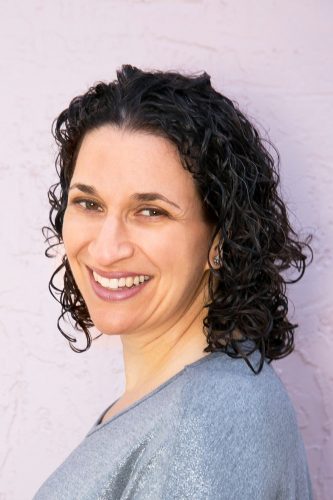 Can you tell us a little bit about your background?
Can you tell us a little bit about your background?
I am a board certified behavior analyst at the doctoral level and a licensed psychologist in the State of Florida. I received my PhD in school psychology from Fordham University in New York and did my training at the Marcus Autism Center and Emory University in Atlanta, GA. My postdoctoral residency was focused on working in the severe behavior population and afterwards began specializing in pediatric feeding disorders. I’ve been working with the feeding population for over 8 years and have also focused on parent training with children across the developmental spectrum.
Why did you choose to become a behavior analyst and continue further studies in Applied Behavior Analysis?
After completing coursework for my PhD, I started practicum hours in an autism center. I always imagined that I would be a school psychologist, working in a school, but after my experience at the Marcus Autism Center, I knew I wanted more specialized training in behavior. I began taking courses to meet the requirements to sit for the BCBA exam so that I could better understand the behavior of the children with whom I wanted to work.
Tell us about the background of students you see come through your program. Are you seeing more behavior specialists and or non-traditional career changers coming from other fields?
The students I teach come from an array of backgrounds. There are quite a number working in more traditional roles, such as early intervention and autism clinics. However, there are also a growing cohort working with the adult population or second career students who want to respecialize in ABA.
What would you say is the most rewarding aspects of being a certified behavior analyst?
I love knowing that the services I provide have the highest chance of being successful. Especially in the feeding disorders population-there are not many BCBAs who focus exclusively on this group.
“There is nothing like sharing the experience of a 6-year-old child taking a bite of their birthday cake for the first time because of the work that you did.”
Often times, I would see clients who have been to a number of different professionals in varying disciplines, but since they did not have a focus on understanding the underlying behavior, they were not successful. But after coming in for behavioral services, our team was able to achieve success. We were using evidenced-based practice for these children to understand the function of the behavior and tailoring interventions to teach more adaptive responses. There is nothing like sharing the experience of a 6-year-old child taking a bite of their birthday cake for the first time because of the work that you did.
What is one piece of advice you’d give to an aspiring behavior analyst?
Be open to any opportunity that comes your way. In a million years, I never thought that I would be working with the pediatric feeding disorders population. In fact, I had no clue what that even was when I started graduate school. But as I was exposed to different ways to use ABA technology, I constantly volunteered for new and exciting opportunities that came my way. And now, I could never imagine not working with these children.
What do you feel are the most pressing issues in ABA today, and how does the Regis program prepare graduates to address these issues?
I love that the field of behavior analysis is always changing in response to the best research available. This is how we BCBAs continue to ensure that we are providing the best services possible to help our clients. However, some behavior analysts get stuck and stop reading up on the most up-to-date assessments and interventions in the field. Regis places a high importance on students going back to the research, understanding the research, and consuming the research. Our students feel confident in looking up literature and then using it as a basis for how they conceptualize their approaches for their clients. This is the basis of ABA and our students are trained to meet that challenge.
Speak to an enrollment advisor to learn more about how you can get your Master’s in Behavior Analysis online degree.
